
For whatever reason, a lot of women are more interested in health and nutrition than men. Andy was recently asked to write an article for a corporate magazine geared towards men so I thought I would share what he had to say—and maybe the career/ success angle might motivate more men to clean up their diets!
By: Andrew Larson, M.D., F.A.C.S, F.A.S.M.B.S.
Let’s face it; being successful in today’s world requires tremendous energy and stamina. While I don’t have to fight tigers like our ancestors might have had to do hundreds of years ago, I simply would not be able to maintain my schedule as a surgeon if I didn’t have a healthy and strong body. And at the core of a healthy and strong body is a sound nutrition plan. After being in the medical field for over 15 years now one thing I can tell you for sure is that getting sick can end your career. Nobody wants to hear this but it’s the truth. You can’t afford too many “sick days” nowadays…
I became interested in nutrition because of illness. In 1998 I was in medical school at the University of Pennsylvania when my then high school sweetheart (who is now my wife), Ivy Larson, was diagnosed with multiple sclerosis (MS) at the age of twenty-two. Ivy’s neurologist at the University of Miami said she was in the early stages of the disease and that if she changed her diet she could potentially keep her disease in remission. At the time, I’ll admit I thought her doctor was a little “out there” in recommending dietary therapy for a disease like MS but after studying the research I realized he was right. Nutrition does matter for MS. And it matters for pretty much every other disease too (including cancer, heart disease, other inflammatory diseases such as arthritis and asthma, obesity, type 2 diabetes, etc.)
Nutrition also matters for staying mentally sharp, energetic and on top of your game in the work force. With the economic climate at an all-time low, job security has become less certain than ever. These days we not only need an extra edge to stay on top of the game…we all need an edge just to stay in the game. Cleaning up your diet can absolutely give you the edge.
Today, more than ever before, the general public is beginning to realize food matters. Despite the intrigue surrounding a more eco-conscious “cleaner” way of eating, our modern diet patterns are by no means “clean” and they certainly are not healthy; the majority of people still consume way too many animal foods (the average American eats 80 pounds of chicken each year—that’s a bit much), too many calories, an abundance of processed junk foods, far too few vegetables, too few “whole” fruits (juice doesn’t count), too little fiber, too few unrefined whole grains (crackers aren’t going to boost your health people), too few pre and pro-biotic foods (and by the way, yogurt is not the only probiotic!) and far too few plant-based disease-fighting phytonutrients. This way of eating is not sustainable to human health, and it’s certainly not sustainable for staying on top of your game.
The animal-food rich, processed food diet most of us eat today is making us fat, sick and slow. Most patients I see in my surgical practice are in need of a drastic dietary overhaul. It’s time to clean our plates; an overwhelming number of studies prove an all-natural, nutrient-rich, whole foods diet made up largely of unrefined plant based vegan foods plus at least 3 servings of omega-3 rich fish each week is the optimal diet for preventing disease, maintaining good health, managing your weight, maintaining peak cognitive function and boosting energy. Ivy (who has co-authored four nutrition books with me) and I call this way of eating “Clean Cuisine” and it is a long-term sustainable and medically sound answer to eating for optimal health, disease-prevention, weight loss, vitality and longevity. And it can even give you the “edge” to climb the corporate ladder a little faster!
Unlike the vast majority of highly processed foods overflowing on today’s supermarket shelves, “Clean Cuisine” is based on whole foods brimming with energy-boosting nutrients in a natural and bioavailable form that your body can actually recognize and utilize. Eating ”real” nutrients from whole foods will help keep your body younger and healthier. Since a nutrient-deficiency can also cause food cravings and interfere with your body’s ability to burn fat, “real’ nutrients from whole foods can help you manage your weight—minus the hunger and food cravings that so often go hand in hand with typical weight loss diets. Some “real” nutrients (such as certain antioxidants, phytochemicals and essential fats) are highly anti-inflammatory and can help you control symptoms of inflammatory conditions such as multiple sclerosis, asthma, allergies, fibromyalgia, etc.
It’s important to understand that popping a vitamin pill, downing a processed vitamin-enriched “power shake” or eating an “energy bar” made primarily with sugar and oil but spiked with nutrients is not the same thing as eating “real” whole foods. In comparison to “real” nutrients from real whole foods, your body can’t necessarily assimilate or recognize synthetic nutrients found in “enriched” processed foods. The word “enriched” is actually a keyword telling you the food has been processed and refined (start reading food labels and you’ll notice many manufacturers of healthy-sounding whole grain crackers, breads, cereals, pastas, etc. actually promote the fact that their foods are “enriched”— as if it’s a good thing!) Keep in mind whole foods don’t need to be “enriched” with synthetic vitamins and minerals because whole foods already contain these nutrients intact and in a bioavailable (useable) form.
One of the great things about eating “Clean Cuisine” is that it really is not that difficult to do. Since whole foods are unrefined “real” foods you have tremendous choices. This means “real” foods like potatoes, whole grains that haven’t been altered from their original state (such as steel cut oats instead of instant oatmeal, barley, brown rice, quinoa, etc.), any food you find in the produce section, unrefined oils, beans, nuts, corn, “whole” soy, and fish are all allowed. And, although you don’t have to be a vegan to eat clean, I strongly encourage you to choose mostly unrefined plant-based foods over animal foods (aiming for 80% plant based foods is a good goal—or you can do what Ivy and I do and be vegan until dinnertime.) Basically, any food that is not derived from an animal is a plant-based food (animal foods include meat, eggs, milk, cheese, chicken, etc.) However, you want to make sure you are eating plant based foods in their most natural form (that means corn not corn flakes, steel cut oats rather than a granola bar “made with oats” and apples instead of applesauce.)
I can tell you first hand eating “Clean Cuisine” really does make a difference in how you age, look and feel. My wife is now 35 and her MS hasn’t been an issue in over a decade and we both attribute her vibrant health and high energy to her diet. Weight gain hasn’t been an issue for either of us either as we both weigh what we did in college. My tendency towards high blood pressure has also been in check ever since I changed my diet. Most encouragingly, when Ivy and I have held our “Health and Body Makeover” programs in the past we have seen startling, clinically relevant improvements in patients’ blood pressure, cholesterol, blood sugar, body fat, CRP levels (a measure of inflammation) and waist to hip ratio in as little as 5-weeks. It is encouraging to know that your body will respond rather quickly to the food you provide it…good or bad. Here are some doable guidelines to help boost nutrition and clean up your diet.
Doable Daily Goals to Eating “Clean Cuisine”
- Eat at least one large serving of vegetables (or vegetable-based soup) with lunch and dinner
- Eat one large raw vegetable salad made with dark leafy greens each day
- Eat one serving of fresh fruit with breakfast plus at least one additional fruit serving at some other point in the day
- Eat beans or legumes each day
- Go vegan until dinnertime
- Swap your “whole grain” bread made with flour for flourless “sprouted” whole grain bread (available in the refrigerated section)
- Eat fatty fish at least 3 days per week
- Ditch dairy (note: hemp milk is a good substitute for cow’s milk and a good source of essential fats)
- Sprinkle 1 tablespoon of omega-3 rich chia seeds onto a salad, into a smoothie or into a large glass of water everyday
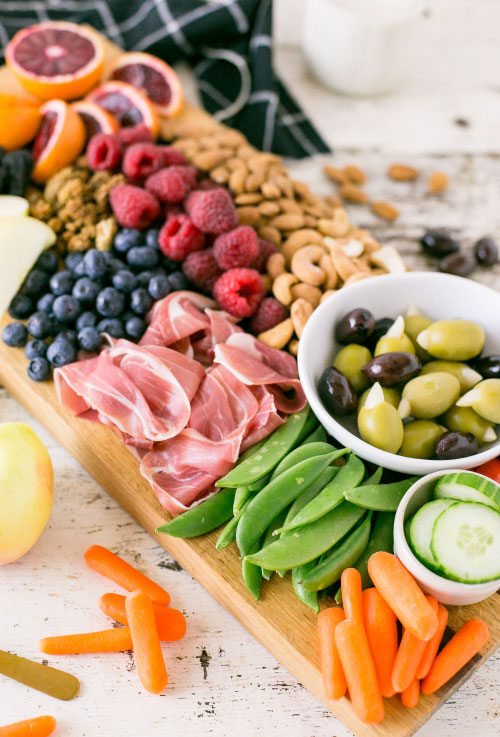
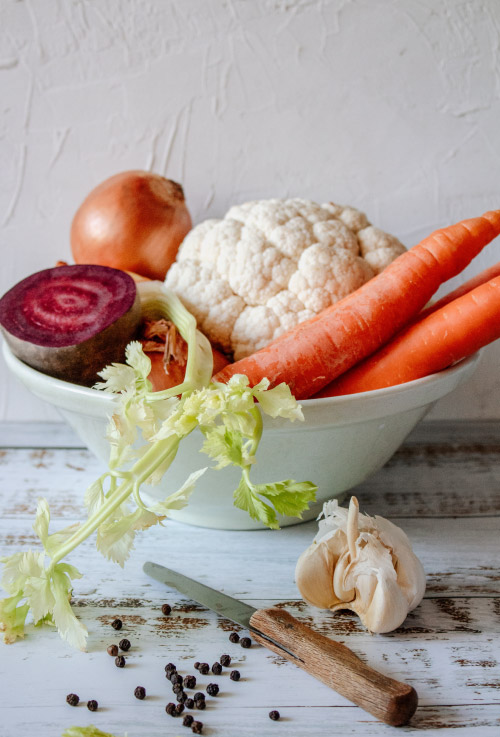

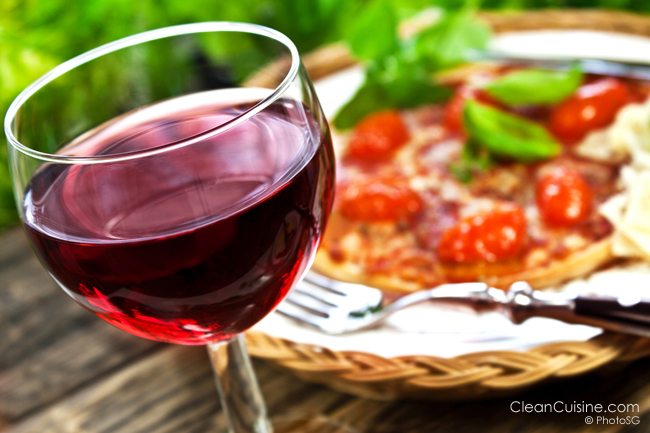
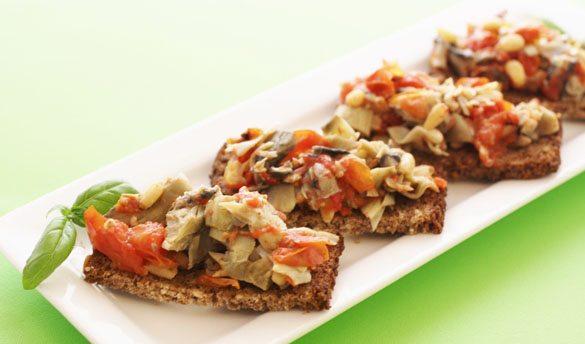
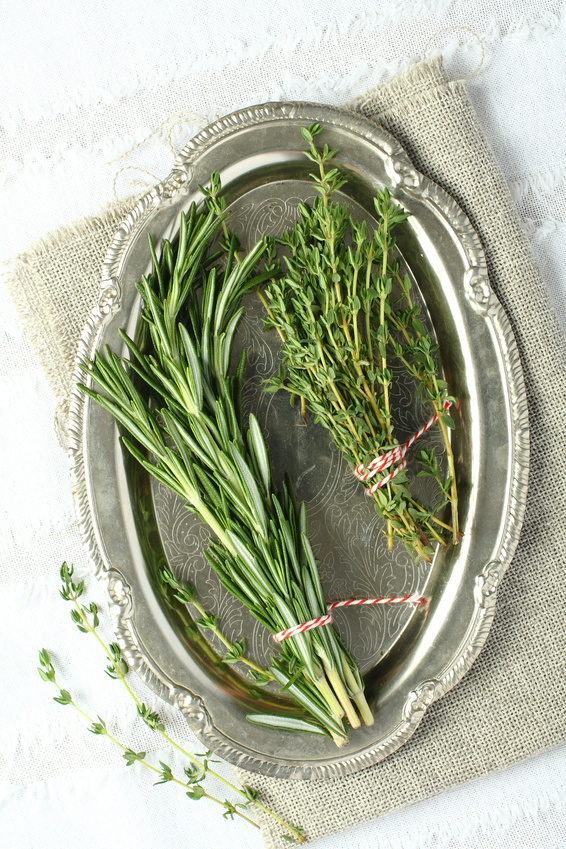
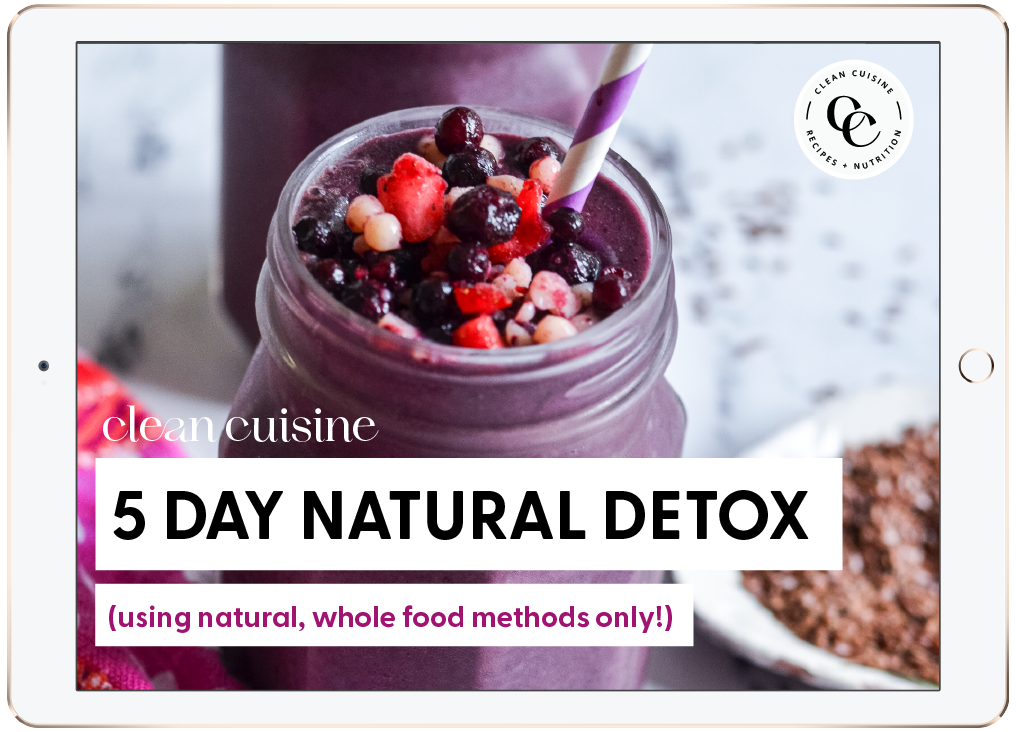
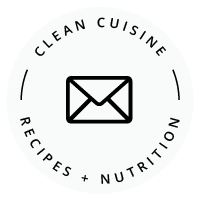
Babara
Thursday 29th of March 2012
I have been staying in the home of my parents who happen to have a health insurance program that sends them gourmet meals prepared by nutritionists. These meals are by no means TV dinners, but very healthy, balanced meals. This is part of an initiative of HMO's to help their patients eat healthy and practice preventative health maintenance. Meals like these are great for losing weight. I would like to get similar benefits through your meal plans.